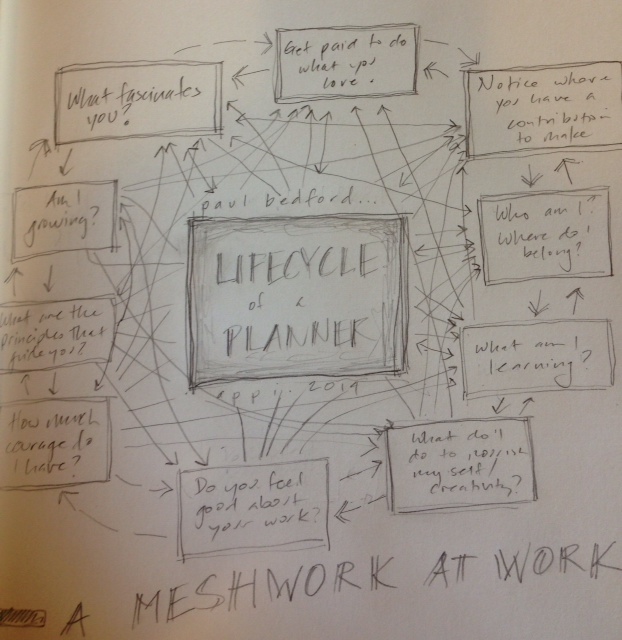There is an election for my professional association, the Alberta Association of the Canadian Institute of Planners. I have put my name forward as candidate for the position of president-elect. The successful candidate will serve one year as president elect, 2 years as president, and 2 years as past president serving as AACIP’s representative to the Canadian Institute of Planners. This is a significant commitment to the profession, one that asks me to consider completely why I would wish to take this role on for the profession.
As I look back at what really interests me about the planning profession, it is about how we as a collective are in a position to support our communities as they strive to thrive. We are in service to something far larger than our individual jobs, or even the planning profession. Collectively, we work in service to the fullness of community. To best do that, we need to continue the evolution of our professional association while holding two distinct priorities: the development of our profession as technicians and effective practitioners, and the development of the health of our communities. This involves a new era of professional practice where we acknowledge that we offer so much more than technical services to communities, or technical learning opportunities for ourselves.
The October 2010 AACIP conference is focusing on 2 questions: What if we are not planning to survive? And who is planning our future anyway? These questions can relate to both our professional membership, as well as our communities. As a profession, we need to explore these questions – among ourselves and with our communities – in order to fully respond to what we are called to do. It is time for us to notice what we, ourselves, are planning for and what we need to do to get there.
As I reflect about why I put myself forward in this way, the answer I keep coming back to is about my passion for the development of our professional practice that is in tune with what our communities need from us. I see I have a role to play in this. So, for your consideration:
The skills I offer for my colleagues’ consideration:
- Executive leadership – senior leader in municipal/regional government, University Board of Governors, numerous community boards
- Effective resource management – $17 M operating and $250M capital budgets
- Strategic leadership focus amidst competing demands
- Strategic alliances and relationships with government, stakeholders, and other professions
- Appropriate balance between confrontation, cooperation, and collaboration
- Meaningful processes for conversation – between ourselves, our professional colleagues and our communities
The platform I offer for my colleagues’ consideration:
A leader these days needs to be a host – one who convenes diversity; who convenes all viewpoints in creative processes where our mutual intelligence can come forth. ~ Margaret Wheatley
Without collective intelligence and wise, effective action, the future of our organizations, our communities, and our planet remain imperiled. ~ Thomas J. Hurley and Juanita Brown
After 50 years, AACIP is transitioning into something new: the Alberta Professional Planners Institute (APPI). Along with the name, the planning landscape has changed as well: now over 800 members, a diverse collective practice, and communities facing complex economic, social, ecological and governance challenges. Under the legislation creating APPI, the profession now has an explicit relationship with the public interest.
For the next 50 years, the world will continue to change. To be effectively in service to our communities, it is time to engage with each other and the larger community to ponder the following questions:
- What is the public interest? What is APPI’s relationship with the public? What could it be?
- How can the collective voice of APPI serve the public interest?
- What skills do APPI members need to support the communities we serve?
- How can APPI collaborate with other organizations to serve both its members and the public?
- What values are at the core of our work?
- What is our unique service to the public?
- What are the emerging qualities of a new standard of professional practice?
Please cast your ballot.
